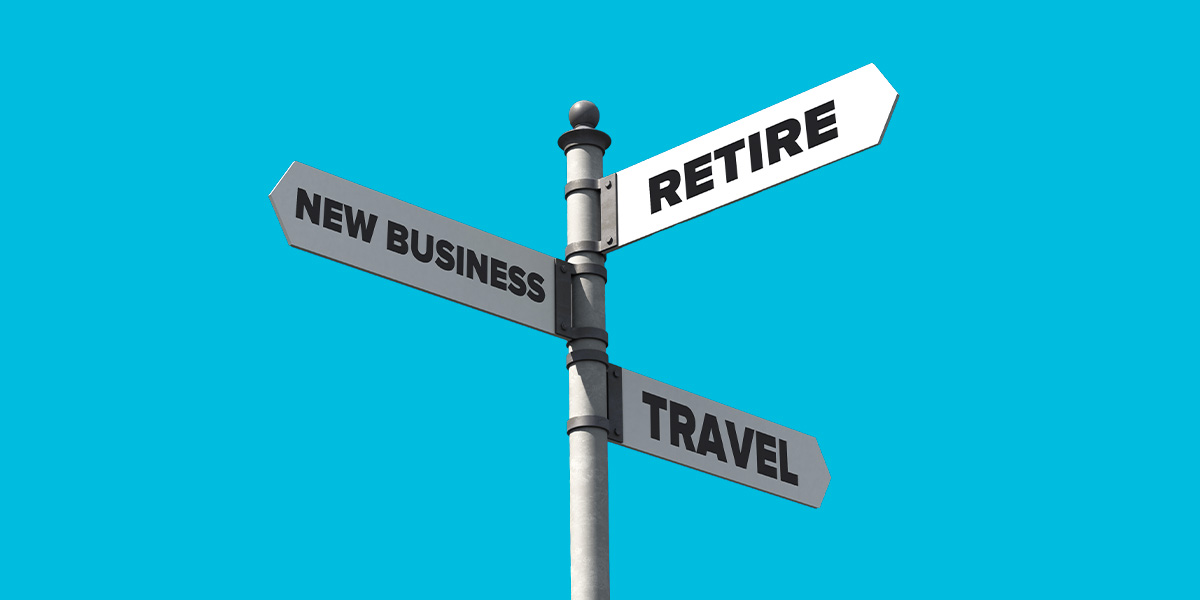-
Business Banking -
Insights
What Are SBA Loans?
If you're looking to build or expand a small business, a loan guaranteed by the U.S. Small Business Administration may be among your most powerful tools.
SBA-backed loans — commonly called SBA loans — make it easier for small businesses to secure funding through participating lenders.
SBA loans are often used for:
- Purchasing a new building.
- Upgrading equipment.
- Remodeling a facility.
- Obtaining operating capital.
- Refinancing debt.
“Small business is really the lifeblood of the U.S. economy, and the SBA was established to support small businesses that need capital to start or capital to invest in their business to grow the business, which in turn has a positive impact on the economy at large," said David Cameron, City National Bank's head of business banking.
Compared with conventional lending, SBA loans require a much lower down payment and offer longer repayment terms — and lower monthly payments — noted Nicole Auyang, the head of SBA sales and strategy and regional business banking at City National Bank.
Because the SBA guarantees the loans, a bank can consider borrowers outside its usual risk profile, she added.
Types of SBA Loans
The 7(a) Loan
The SBA administers two major commercial loan programs for for-profit small businesses. The most common, the 7(a) loan, allows companies to borrow up to $5 million. These loans may come with fixed or variable rates.
Uses for a 7(a) SBA loan include:
- Acquiring a business.
- Refinancing.
- Purchasing furniture, fixtures and supplies.
- Buying real estate.
- Constructing a building.
The 504 Loan
The 504 loan program offers long-term, fixed-rate borrowing, also up to $5 million, "for major fixed assets that promote business growth and job creation," according to the SBA. These loans are available to businesses with less than $15 million in tangible net worth and less than $5 million in net income.
Business owners can use 504 loans to buy buildings or land for their company, construct new buildings, purchase machinery or upgrade land, facilities or utilities.
"They both contribute greatly to the small business community in the United States in terms of providing flexibility and favorable terms to our small business owners, compared to traditional or conventional loans," said Auyang.
Both programs cover business needs, including short- and long-term capital such as revolving lines of credits to bridge short-term cash flow, and support for business expansion through mergers and acquisitions, she said. City National also offers financing through the SBA Express program.
Differences Between 504 & 7(a) Loans
SBA loans can be taken out in varying loan amounts with different terms. This means that what type of loan a person needs depends on their specific situation.
Owners must use funds from SBA loans solely for business purposes, not personal needs. Because of this, they must be able to demonstrate their need for the loan.
Generally speaking, business owners opt for a 504 loan when they're looking to purchase real estate or equipment. When securing working capital, owners often opt for a 7(a) loan.
However, the best way to determine what option fits your needs is to speak to an SBA loan specialist. They'll listen to your goals while considering your financial situation and help you decide what option will work best for you and your business.
SBA Loans for Commercial Real Estate
In California's high-density market, real estate is among the most important purchases for companies, according to Cameron. “One of the most costly fixed expenses is rent, and so it behooves them to acquire real estate if they can," he said.
The 504 loan requires only a 10% down payment, allowing a business owner to purchase a $1 million property with $100,000 in cash, Cameron noted. “That could be a month's worth of rent, but now the business has an appreciating long-term asset," he said. The loan offers a lower long-term interest rate than other options, he added.
Another benefit: Business owners can use 504 loans to personally acquire their company's property, building personal wealth by collecting rent from their business, which must occupy the real estate. In states like California, the real estate can be worth more than the company itself, Cameron said.
Loans For Medical Practices
Among City National's small business clients, 7(a) loans are popular for medical practice buyouts and mergers. Many surgeons use 504 loans to purchase or build and equip state-of-the-art surgery centers for their practices.
SBA Loan Requirements
Business owners interested in applying for SBA loans should find an SBA expert within a financial institution who can help identify the best loan to suit their needs, said Auyang.
Finding a specialist at the outset is key because of the specific qualifications, parameters and eligibility requirements that the federal agency outlines for each lending program, she added.
A bank's SBA expert can help walk the business owner through the items needed to proceed with the loan application. Depending on the business purpose for the loan — whether the proceeds will go toward commercial real estate or an acquisition or equipment purchase, for example — business owners will need to provide various documents.
They should always have at least two years of business financials such as tax returns, the individual owner's (or multiple owners') personal tax returns and all supporting information pertaining to the proposed use of proceeds, said Auyang.
For a commercial real estate purchase, they may need supporting documentation like a purchase contract. For an equipment purchase, an invoice or draft invoice is needed, she said.
Your bank expert can help you identify the materials and information you may need to supply to the SBA.
Common information that the SBA requires for loans includes:
- Current profit and loss statements.
- A business license.
- Personal and business income tax returns covering the last three years.
- Personal resumes.
- A business overview.
Your lender will likely check your personal and business credit scores and may ask for other information on your background, according to the SBA. You may be asked to put up collateral, but other options for securing SBA-backed financing, such as personal guarantees and liens, may be necessary.
Do SBA Loans Require Repayment?
While the SBA supported forgivable Paycheck Protection Program loans to help keep businesses afloat and employees paid during the pandemic shutdowns of the past few years, traditional SBA loans must be repaid.
Borrowers typically make monthly payments, including principal and interest, to repay their loans.
The SBA has specific guidelines in case of loan defaults, and lenders can work with borrowers on a case-by-case basis should trouble arise.
City National Bank's business lending specialists are ready to help you explore SBA loan options for your small business. To learn more, please contact us today.
This article is for general information and education only. It is provided as a courtesy to the clients and friends of City National Bank (City National). City National does not warrant that it is accurate or complete. Opinions expressed and estimates or projections given are those of the authors or persons quoted as of the date of the article with no obligation to update or notify of inaccuracy or change. This article may not be reproduced, distributed or further published by any person without the written consent of City National. Please cite source when quoting.
City National, its managed affiliates and subsidiaries, as a matter of policy, do not give tax, accounting, regulatory, or legal advice, and any information provided should not be construed as such. Rules in the areas of law, tax, and accounting are subject to change and open to varying interpretations. Any strategies discussed in this document were not intended to be used, and cannot be used for the purpose of avoiding any tax penalties that may be imposed. You should consult with your other advisors on the tax, accounting and legal implications of actions you may take based on any strategies or information presented taking into account your own particular circumstances. Trust services are offered through City National Bank.
City National Bank Small Business Administration (SBA) Lending Programs are subject to credit and collateral approval. A due diligence fee may be required upon approval, and other fees and other restrictions may apply. For SBA loan products, SBA eligibility is also required. Terms and conditions subject to change.





